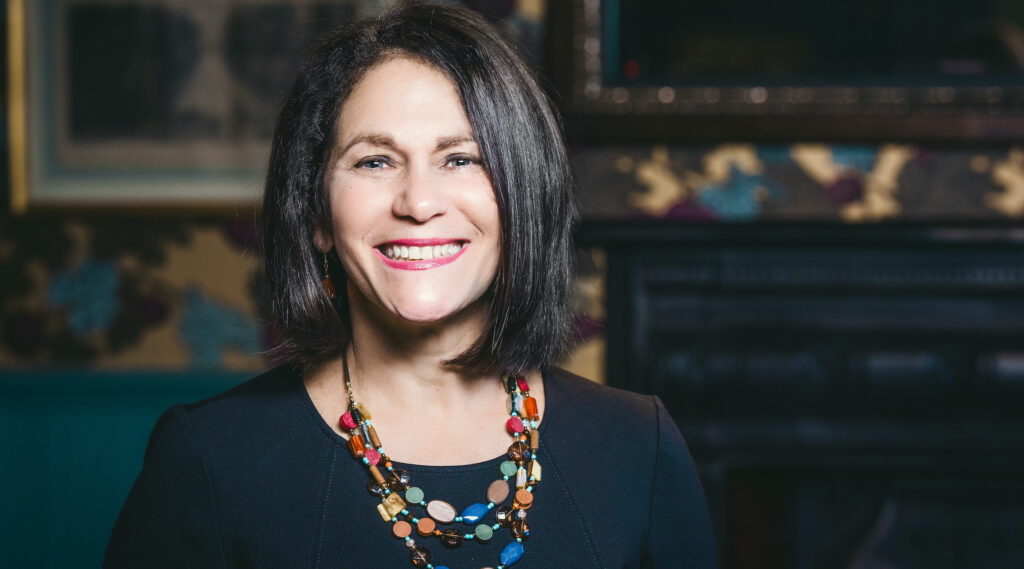Employee engagement guru Debra Corey talked about the power of company values during Covid-19.
This week’s CHRO Community Conversation featured celebrated author and employee engagement guru Debra Corey, who has added a chapter to her recent book, Bringing Your Values Out to Play. In this new chapter, she investigates the power of company values and the way they have helped businesses survive and thrive through the Covid-19 crisis.
The CHRO SA Community Conversations, hosted in partnership with Workday, have served as a great platform for HR leaders to ask each other questions, exchange ideas, blow off steam and compare notes throughout the pandemic. This week, HR leaders heard various case studies from Debra’s book.
Debra said she had seen some really bad press around companies that were not living their values, explaining why media reports about how horrible companies are and how they’re not supporting their people or the communities they’re in, are bad for business.
“Customers are even boycotting these businesses because of the way they've responded during the pandemic,” said Debra, before explaining that in order to thrive in uncertain times organisations must have their principles and values well defined, visible and applied in every area of the business.
She referred to various studies, such as the Reward Gateway Study, which found that only 32 percent of employees know what their organisation’s values are. A similar study by Gallup found that only two out of 10 knew their values, while only 23 percent of employees felt they could use their values at work.
“So it's important to run workshops on how values can be applied in every area of the business,” said Debra, adding that values can provide certainty and comfort, but that it was critical for employees to know that everything they do should be done through the lens of organisational values.
“I worked for a supermarket chain where 'family' was one of our values, but when I joined, I looked at our benefit programmes and they did not speak to that. Instead, all the senior people got great benefits and the people working in the supermarket got horrible benefits. And I thought that's not a family. So I changed all our benefit programmes,” she said.
Values are inclusive
In another example, Debra referred to a travel company that purported to value its customers until one of the employees challenged the company, saying “We claim that this is our value, yet if one of our customers cancels their trip, we keep their deposit. How is that caring for the customer?” And the business changed that policy. This, Debra said, showed why it was important for companies to be open and transparent when engaging with tier people on these kinds of matters.
On whether values are determined from the top down or the bottom up, Debra said it helped her while writing her book, to shift her mindset from talking about “developing” values, to “discovering” them.
“Because, if you think about values, they are already inside of you. You are not developing them from anything. Most companies that I interview include everybody when it comes to their values. Some companies that I’ve spoken to have taken a top-down approach either because they have had a crisis, or because they needed their values done quickly,” she said.
Sharing values
During the discussion, HR leaders shared their own experiences about how they had leveraged their values this year.
Cisco HR lead for Africa Andisa Liba said one of her favourite values at the company is “give your ego a day off”, which she said translated to the need to ensure people have an ability to have differences and not take it personally.
“We become bigger as individuals and more powerful as a collective when we respect and value what makes us different and our unique personal differences. Inclusion will always beat exclusion," said Andi.
Google market HR cluster head for SSA Avanthi Maharaj said: “We have three very simple values. We call them the three “respects”: respect the user, respect the opportunity and respect for each other. And what it boils down to is that we, at Google, have the potential to help millions of people, but that is no good if we can’t be good to each other first. The golden thread is that we have to make sure our house is clean before going out to do all this good in the world.”
MTN regional talent leader Bess Skosana said that, during Covid-19, MTN's values focused on putting people first. “It's not one of our normal values but it became a value during the pandemic when we made it a priority to safeguard our people. We started running a daily survey through which people could check-in and report how they were feeling. And if they were not feeling well, the company doctor would follow up and give that individual a call.
“We also set up a hotline where people could report symptoms or Covid-19 cases. We even went to the extent of setting up a fund within MTN Group in order to support families of employees. In some countries, it is used for funeral arrangements; in others, it is used for PPE,” said Bess.
All in all, it was a conversation where HR leaders left with a better understanding of what good values are and how companies have brought their values “out to play” during Covid-19.












